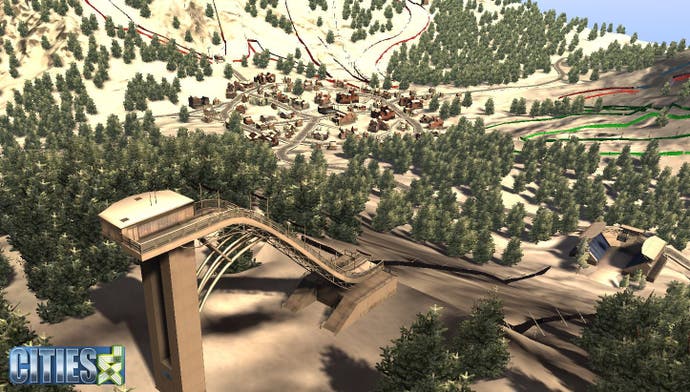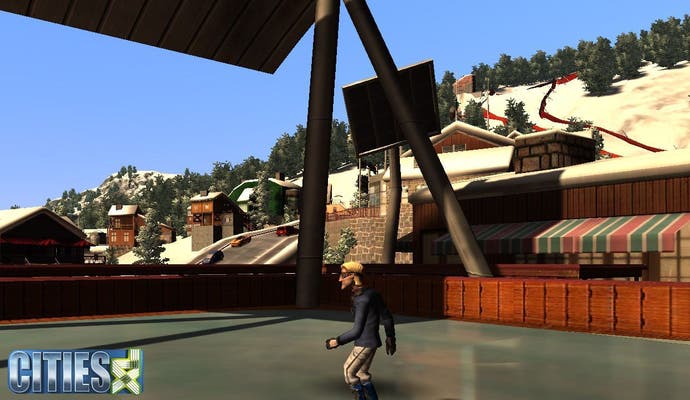Cities XL
The world's first social city-sim.
All of the resources that you import will be bought from other actual players - if you make a wine-producing city, for instance, you'll make your money by selling that resource to affluent cities who need it to keep their inhabitants happy. This is a hugely intriguing idea, and in principle we can see it working, but we've concerns about how exactly it's going to be possible to moderate this economy - won't everybody be rushing for cities with a nearby oil resource in order to become obscenely rich? However, MonteCristo assures us that there is enough terrain and enough resource possibilities to go around, with space for thousands of cities on each in-game planet (there will be around five of them at launch, each acting as a different server). It will be fascinating to see how this in-game economy develops.
Interaction between players will be largely trade-focussed, although you can visit other players' cities just to have a look around or to get inspiration for your own's design. Taking the form of your own, fully-customisable avatar, you can walk around anyone's cities at street level, or organise virtual meetings with other players. Trading can all be done with a menu screen - you submit your offer, the seller agrees, done - but you can be a little more creative than that. You can, for instance, invite four or five different sellers to a meeting in some impressive boardroom in your city and play them off against each other to get the best deal.
Cities XL's world is necessarily persistent. When you're not online, your city and the online economy are going on without you. Consequently you might want to check what's going on when you're away from your home computer, and MonteCristo will host a website for your city on the Cities XL community page, so that you can do just that. This really is an inspired idea - you can log in when you have ten spare minutes, as if you were checking your online email, and check up on how your city's doing, approve a few resource deals and send a few messages to people on your friends list.

There's also in-game photo sharing and space for a blog, if you're just that proud of your new shopping district. This will do wonders for the game community - it means that you never have to be away from the game for that long, even when you're on holiday, or at work, or doing any of the other productive things that city-sim players do in their non-leisure hours. It also means you can easily keep up with friends in different time zones.
Cities XL is essentially three games in one: a meticulously detailed city-simulator when you're playing offline, a mission-based management game when you're playing the gems, and a massively multiplayer online global economy simulator when you're paying the subscription fee. It's ambitiously complicated - to the extent that it took us about twenty minutes of questions before we fully understood the scope of the game during our demonstration - and there's a small danger that players are going to feel overwhelmed.

The interface needs a little work at the moment; although the city-building tools were relatively clear, we found it a bit difficult to determine what was online, what was offline and what was a gem mission. But we get the impression than players aren't going to go online immediately; they'll probably spend a week or few playing offline before being tempted by the massive potential of an online, global city-management game, and all the new content that subscribers are going to have priority over.
It's also clear that a good percentage of Cities XL's players are going to have to take the game online in order to maintain a player-dependant economy. The community is going to have to be big, and MonteCristo is going to have to provide enough incentive for them to keep playing. At this stage, though, it really looks like it could work. It's a city-sim fan's dream, and there should certainly be enough of those around to support a game of this scope.

